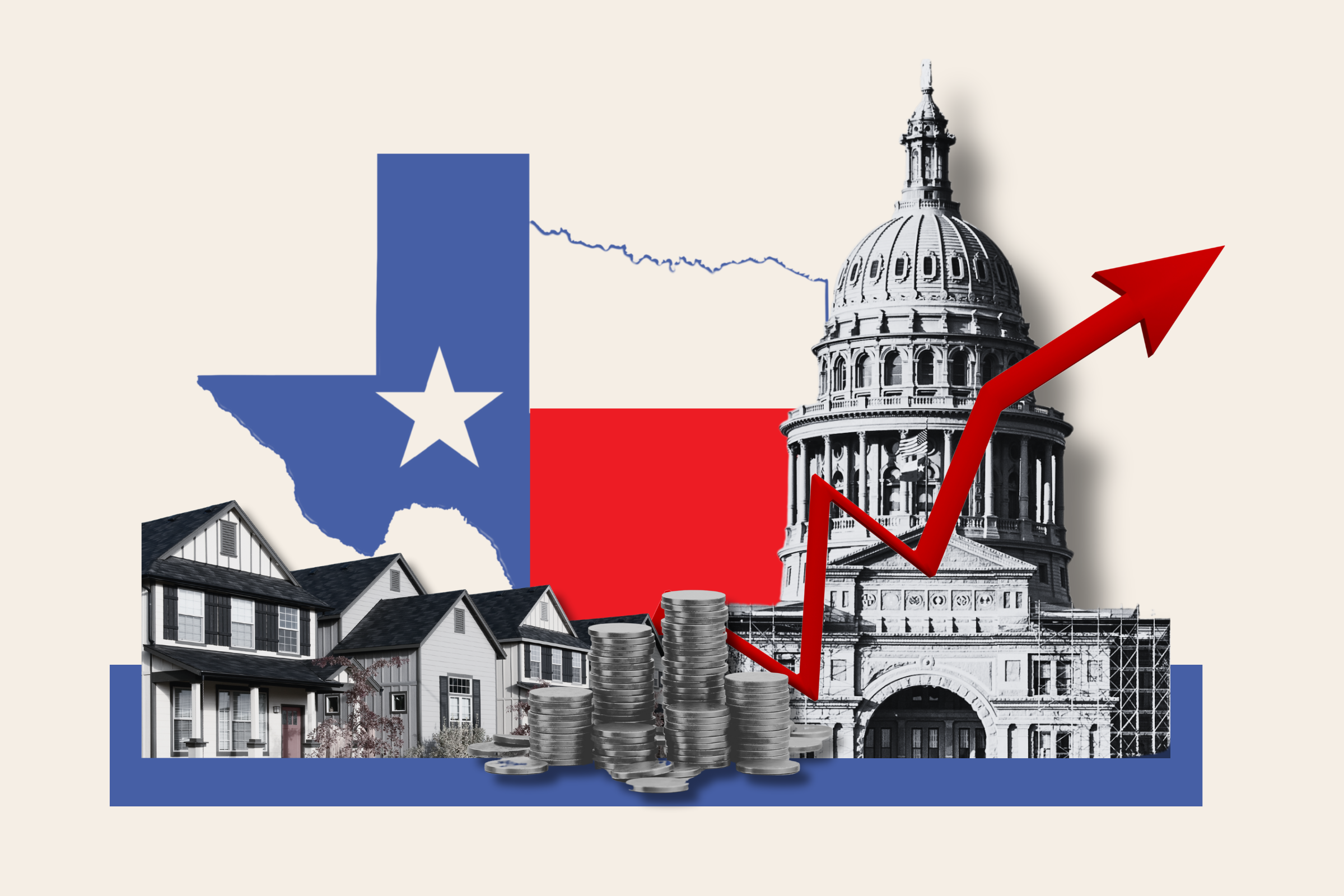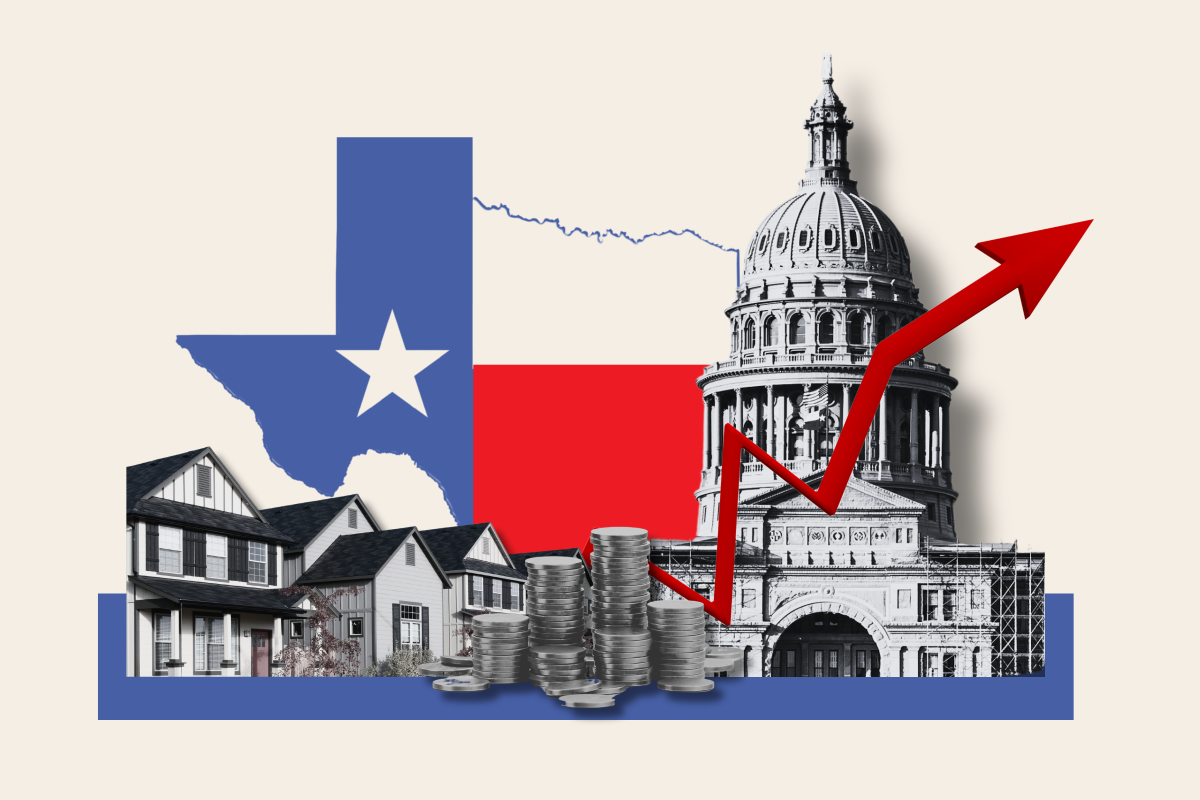In the heart of America’s Lone Star State, a revolution is brewing. The Lone Star State is abuzz with a seismic shift in the business landscape, one that promises to reshape the very fabric of Texas’s economy. As the Old West gives way to the New, a new era of entrepreneurship, innovation, and economic growth is unfolding.

From the bustling corridors of downtown Austin to the sun-kissed ranchlands of the Panhandle, a thriving business boom is taking hold. Major corporations, startups, and small businesses are rising to the challenge, driven by an insatiable appetite for opportunity and a relentless pursuit of success. The Texas Business Boom is not just a story of individual success – it’s a vibrant tapestry of diverse industries, cultures, and perspectives, woven together by a shared sense of optimism and determination.

The Texas Business Boom: A Thriving Economy Amidst Geopolitical Tensions
The Texas economy recorded its 36th successive month of growth in March and is performing substantially better than the U.S. economy as a whole, according to figures from the Texas Workforce Commission (TWC). During the month, Texas’ seasonally adjusted nonfarm job count increased by 19,100, to a record of 14,115,700, with the total number of people working in Texas, including the self-employed, reaching 14,590,800.
Economic Growth and Job Creation
Record Job Growth in March
- Seasonally Adjusted Nonfarm Job Count: 14,115,700
- Breakdown of Job Gains by Sector:
- Leisure and Hospitality: 7,300 jobs
- Mining and Logging: 3,700 jobs
- Other Services: 2,400 jobs
Annual Job Creation and Comparison
Year-over-Year Nonfarm Employment Increase: 270,700
Comparison with National U.S. Growth Rate: 0.1%
Impact of the Texas Economy on the Nation
Texas’ GDP Growth Rate
Fourth Quarter 2023 GDP Growth: 5%
Comparative Analysis with Other States:
- Texas: 5%
- U.S.: 3.4%
- South Carolina, Idaho, Utah, and Nevada: 5%
Governor Abbott’s Comments
Leadership Statements on Economic Success:
“The most dynamic economy in the nation is built by Texans. I am proud that Texas again leads all states in annual job creation. “This continued momentum is a testament to the strength of our young, skilled, diverse, and growing workforce, our welcoming business climate, and the strategic investments we continue to make in education, workforce development, and critical infrastructure.”
Strategic Investments and Workforce Development:
TWC Chairman Bryan Daniel stated, “Texas continues to be a top place for growth and economic success with thousands of jobs added by employers in March. “Our world class workforce of talented Texans attracts employers from many expanding industries.”
Joe Esparza, the TWC Commissioner Representing Employers, added: “Texas continues to attract employers on a global scale because of our unique business climate, skilled workforce, and strong community partnerships. “TWC can help workers across the state upskill and reskill to fill Texas employers’ growing workforce needs.”
Housing Market and Population Dynamics
Affordability and Housing Inventory
Median Home Prices and Inventory Levels:
Median listing price in Texas: $360,000
Comparison with Other States:
- California: $749,000
- National median: $400,000
- California: 39 million residents
Population Growth and Migration Trends
Influx of Newcomers and Housing Demand:
Population growth in Texas: 31.29 million residents
Comparison with Other States:
Geopolitical Context and Border Tensions
Border Security Initiatives
Operation Lone Star and Illegal Crossings
Operation Lone Star, launched by Texas Governor Greg Abbott in 2021, aimed to combat illegal crossings from Mexico. According to Abbott, 507,200 suspected undocumented migrants had been detained in his state since the program’s inception.
Impact on State-Administration Tensions
The operation has led to tensions between the state authorities and the Biden administration. In January, the Supreme Court ruled that federal agents could remove razor wire placed along the southern border, prompting Abbott to claim the state was facing an “invasion” and invoking its “constitutional right to defend itself.”
Economic Implications of Border Policies
Effects on State Economy and Job Market
The Texas economy recorded its 36th successive month of growth in March, with the state’s seasonally adjusted nonfarm job count increasing by 19,100, to a record of 14,115,700. The total number of people working in Texas, including the self-employed, reached 14,590,800.
Challenges and Opportunities
While the border policies have created challenges for the state’s economy, they have also presented opportunities for growth. The Texas Workforce Commission (TWC) reported that jobs were created in a number of sectors during March, with the biggest gain in leisure and hospitality, which produced another 7,300 jobs.
Future Outlook and Economic Indicators
Projecting Future Growth
According to the TWC, nonfarm employment in Texas increased by 270,700 between March 2023 and March 2024, a 2 percent annual increase and substantially above the national U.S. growth rate of 0.1 percent.
State Initiatives and Strategic Investments
The Texas state government has made strategic investments in infrastructure, education, and workforce development programs to support the state’s economic growth. Governor Abbott stated, “The most dynamic economy in the nation is built by Texans. I am proud that Texas again leads all states in annual job creation.” This continued momentum is a testament to the strength of our young, skilled, diverse, and growing workforce, our welcoming business climate, and the strategic investments we continue to make in education, workforce development, and critical infrastructure.”
Analysis of Business Environment
Business Climate and Attractiveness
Texas’ business climate is considered welcoming and attractive to global companies. The state has a low taxes and regulations, making it an attractive location for businesses. According to the TWC, Texas continues to be a top place for growth and economic success with thousands of jobs added by employers in March. Our world-class workforce of talented Texans attracts employers from many expanding industries.”
Support for Entrepreneurs and Businesses
The Texas Workforce Commission (TWC) plays a crucial role in supporting employment in the state. The commission provides resources and services to help businesses and entrepreneurs succeed. Additionally, community partnerships and business support services are available to support the growth of businesses in the state. TWC Chairman Bryan Daniel stated, “Texas continues to be a top place for growth and economic success with thousands of jobs added by employers in March. Our world-class workforce of talented Texans attracts employers from many expanding industries.”
Conclusion
In “The Texas Business Boom” article published in Newsweek, the spotlight shines on the Lone Star State’s rapid growth and resurgence as a thriving economic powerhouse. The article highlights the state’s strategic location, low cost of doing business, and innovative spirit as key factors driving this boom. Texas’s business-friendly environment, coupled with its vast natural resources and highly skilled workforce, has attracted numerous major corporations and startups, creating a vibrant ecosystem that fosters entrepreneurship and job growth.
The significance of the Texas business boom extends beyond the state’s borders, as it has far-reaching implications for the national and global economy. As a leading hub for industries such as technology, energy, and healthcare, Texas’s growth has the potential to drive innovation, create jobs, and stimulate economic activity across the country. Furthermore, the state’s ability to attract and retain top talent, combined with its diverse economy, positions Texas as a model for other states and regions looking to boost their economic competitiveness.

